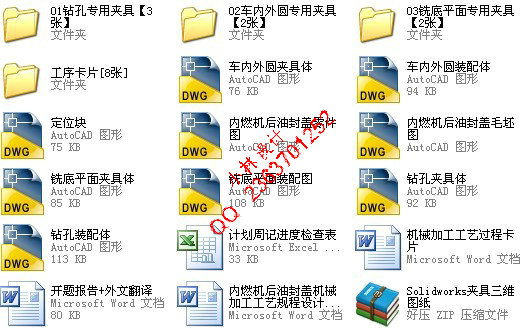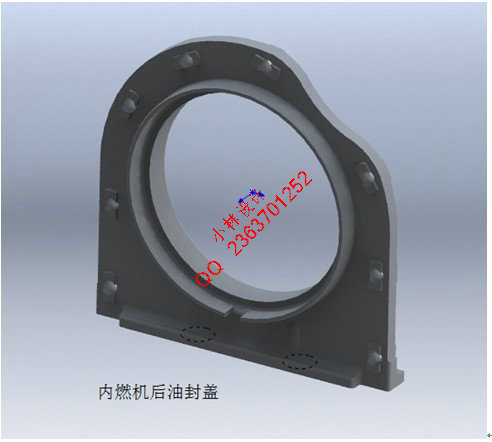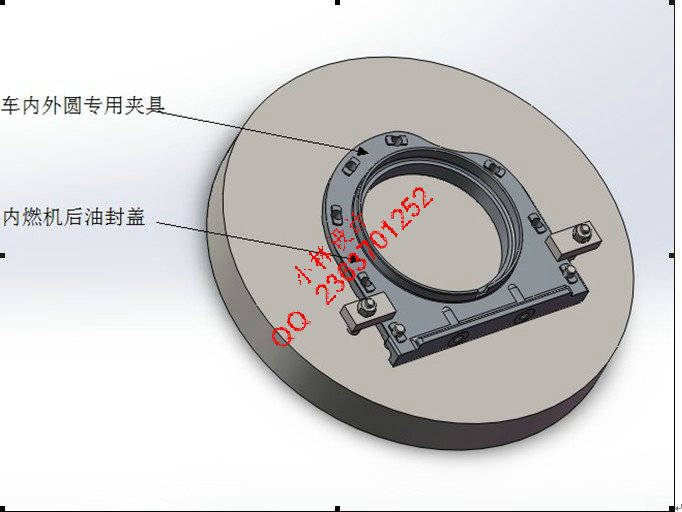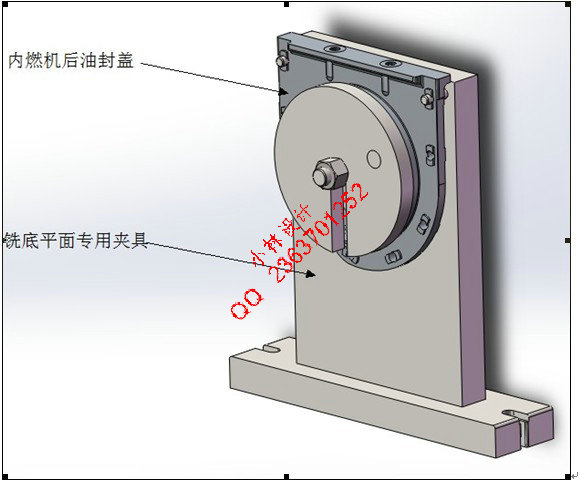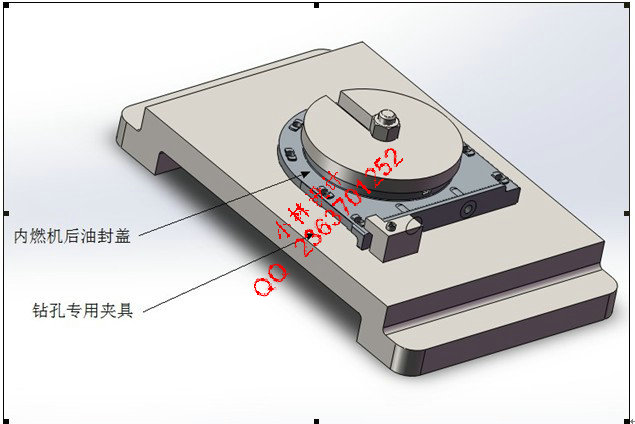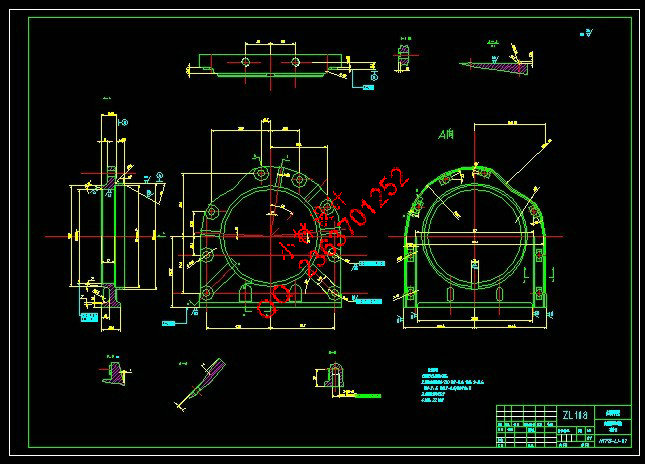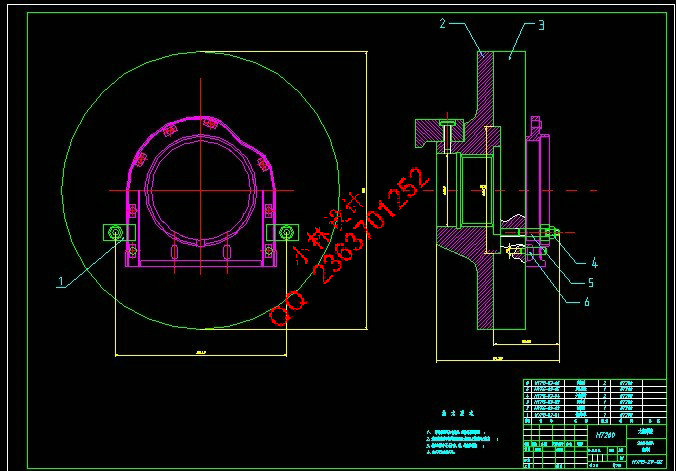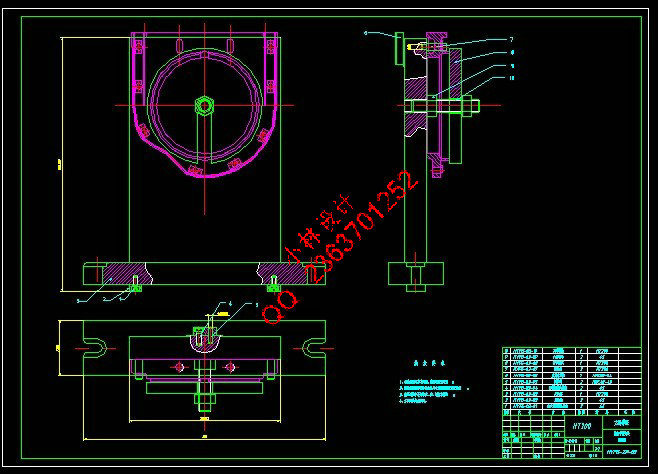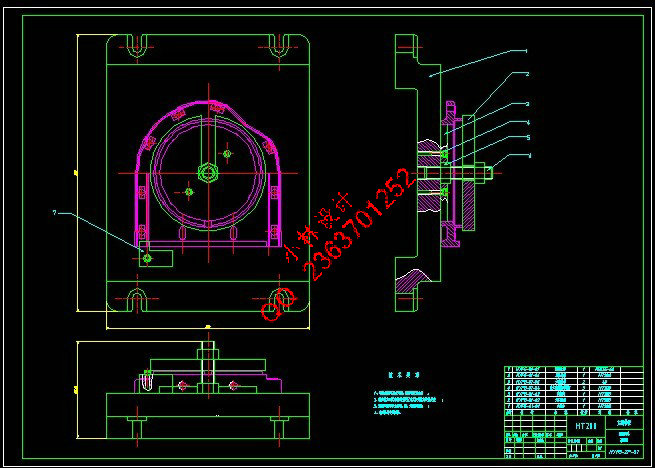|
设计描述:
文档包括:
word说明书一份,共72页,约27000字
任务书一份
开题报告一份
外文翻译一份
CAD版本图纸,共9张
SW三维图纸,一套
工序卡一套
摘 要
本次毕业设计的题目是内燃机后油封盖机械加工工艺规程设计及系列夹具设计。其主要内容包括后油封盖的零件分析、加工工艺规程设计和专用夹具设计等三大主要部分。
本论文中对零件进行了详细分析,在此基础上对零件加工要求进行分析,最终确定毛坯材料,选择定位基准,并留出适当的加工余量。综合分析制定出零件加工工艺路线。得到工艺路线后,需要对工艺路线中的具体参数进行计算,计算加工余量,计算切削用量,并根据计算结果选择机床,此外还计算了加工过程中的辅助时间。
设计专用夹具需要做设计前的研究工作、确定总体方案(研究和计算定位误差、确定和计算夹紧力)、编制夹具体图及装配图。工艺规程设计的重点主要是拟定工艺路线和工艺计算。拟定工艺路线要充分考虑实际情况,尽可能的节约生产成本,提高生产率。工艺的计算需要计算工序加工、确定机床型号和计算动作时间及辅助时间。
关键词:工艺规程设计;专用夹具设计;加工余量;工艺计算
Abstract
The graduation design topic is internal-combustion engine rear oil seal seat. The main contents include the analysis of the components, technical process design and special fixture design, the three main parts.
This thesis of parts are analyzed in detail,On the basis of the parts processing requirements analysis,Ultimately determine the blank material, choose the locating datum, and stay out of the appropriate machining allowance. Comprehensive analysis and formulates the components processing technological route. Get process, need to process in the specific parameters are calculated, calculate the machining allowance, cutting parameters, and according to the calculation results the select tool, also calculated during the processing of the auxiliary time.
Special jig design main steps have design the preparing work before, overall scheme of the sure (positioning error analysis and calculation and clamping force and the determination of calculation), rendering the assembly drawing fixture and fixture drawing. The focal point of design process regulation is mainly develop process route and process calculation. Process route worked fully consider the actual situation, as far as possible to save the production cost, improve the productivity. Process calculation mainly includes process calculation, machine tool selection and mobile time and auxiliary time calculation.
Keywords: Process planning; Special jig design;Machining allowance;Process calculation
目 录
摘 要 III
ABSTRACT IV
1 绪论 1
1.1本课题研究的内容及意义 1
1.2国内外的发展概况 1
1.3本课题应达到的要求 1
2 零件的分析 2
2.1 内燃机后油封盖的作用 2
2.2 零件的工艺分析 2
3 内燃机后油封盖工艺规程设计 5
3.1 确定零件生产类型及毛坯的制造形式 5
3.2 零件材料的选择 5
3.3 基准的选择 6
3.2.1 粗基准的选择 6
3.2.2 精基准的选择 7
3.4 拟定工艺路线 7
3.4.1零件各表面加工顺序的确定 7
3.4.2 工序的组合 8
3.4.3 零件工艺路线方案的对比 8
3.4.4 零件工艺路线方案的分析与选择 10
3.4.5 零件机械加工余量确定 10
3.5 各工序所需机床及工艺装备的选择 10
3.5.1机床的选择 10
3.5.2工艺装备的选择 10
3.6 工艺计算 11
3.6.1 后表面 12
3.6.2 前表面 13
3.6.3 底平面 20
4 夹具设计 23
4.1 机床夹具的概述 23
4.1.1 夹具的组成 23
4.1.2 机床夹具的功能 23
4.1.3 机床夹具需要满足的要求 24
4.2 内燃机后油封盖系列夹具设计 24
4.2.1 内燃机后油封盖系列夹具的技术要求 24
4.2.2 设计夹具的选择 26
4.2.3 钻孔专用夹具 26
4.2.4 车内外圆专用夹具 28
4.2.5 铣底平面专用夹具 30
4.3 专用夹具的配合公差 32
4.4 定位误差的分析与计算 32
4.4.1 定位误差的分析 32
4.4.2 定位误差的计算 34
4.5夹紧力的的分析与计算 36
5 结论与展望 38
5.1 结论 38
5.2 不足之处及未来展望 38
致 谢 39
参考文献 40
附 录 41
| 



